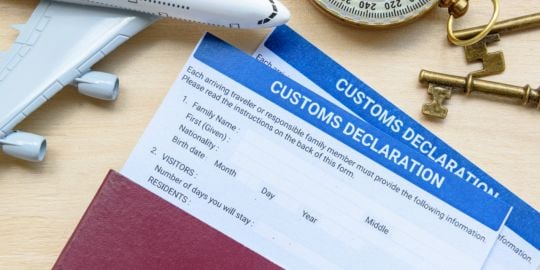Hi all,
In June, how about a trip to Panama?
We invite you to meet Karen Ann, Canadian expat who settled in Azuero Peninsula a few years ago:
https://www.expat.com/newsletter/top/271_june-2014.html
Congratulations to her blog In da campo !
Best,
Julie
Expat.com Team
Blog of the month - June 2014: In da campo
After 2 extended visits to Panama we were wisely advised to not be seduced by misty mountain mornings and deserted beaches at sunset. It is NOT Canada, and you will NOT get the benefits you are used to here, and there are sound reasons why things are cheap. Apart from the language gap, the spanish you learn will be dictionary-spanish, not the dozens of localised dialects based on Spanish. There is a huge problem with non-titled land. The indigenous people have unlimited access to all non-titled land, meaning, if you buy a house but not the land with it, the price may be right, but you may find a family camped out in your yard and there isn't anything you can do about it. Also, there is no 911 service outside of Panama City, nor is there a government-run ambulance service, nor is there any automated postal equipment. In the town of Boquete, (pop 60,000) where we were, there was no mail delivery until there was enough mail for someone to drive up from Panama City. Mail is hand-sorted, lending itself to a high corruption level. Education level is low and few of the locals have travelled, therefore ex-pats are viewed as being millionaires. Our friends, who had long-serving staff working for them went to Florida on business and came back to find their house emptied out. Houses are regularly broken into, following the popular belief is that we can 'afford' it. Ex-pats are well-advised to proceed carefully when socializing with locals (a terrible shame and a missed opportunity for both). There are few governing bodies with enforceable laws, like real estate boards - the agents just decide to sell houses, and have no formal instruction in the field. Building inspectors and minimum-standards for contractors do not exist, and many ex-pats have lost a lot of money when they find they have bought a house they can't unload due to quality issues. Municipalities barely exist, which means little, or no organization to fix roads, broken water mains (if they exist), sewage disposal, and pot holes. Feral dogs are everywhere, and jungles are not far from any town. Things that crawl and slither are plentiful. Pesticides are still used heavily for fruits and vegetables. Be careful of the diseases your pets can catch and good luck finding a qualified vet for snake bites and monkey attacks. Grocery stores are not the quality you are used to and refrigeration is not a standard by any means. Houses are often subject to mud slides in developments where the trees have been removed and no retaining walls built. One also must exercise extreme caution about moving to small fishing villages where contraband may be more plentiful than fish. Health care is paid for, for which you usually qualify after 2 years of having no pre-existing conditions. (Check this out before you go!) The list goes on and on. Suffice to say that Panama is a place with no-rules living, but, of course, the weather is fine, the wine is cheap, and the banks are happy to take your deposits. Good luck.
Wow! You came out with both barrels blasting!
But, your observations are dead-on, even though many promoters and other Panama cheerleaders don't want the unvarnished truth to come out. This is why 40% - 50% or more expats return home after less than five years, according to what I've read. They figure out that they cannot adapt to life in Panama (and don't want to).
I would emphasize the lack of a judicial system. Expats tend to expect that the answer to being wronged by an unscrupulous lawyer, developer, real estate agent or dishonest servant, merchant or neighbor (which will happen to you) is to file a lawsuit in an unbiased and efficient judicial system to right the wrong. Such a judicial system does not exist, especially for expats. Outright theft by developers, conflicts of interest by agents and attorneys, thefts from "friends" and neighbors happen daily without any fear of retribution. Contracts mean nothing.
The U.S. State Department describes Panama's judicial system as follows:
Judicial Recourse
The judicial systems capacity to resolve contractual and property disputes is weak and open to corruption. The World Economic Forum ranks Panamas level of judicial independence to be 133 out of 142 countries in the world. The World Banks Doing Business in 2012 notes Panama is 120 out of 183 on the Registering Property measure, and 119 on the Enforcing Contracts measure.
Congratulations Karen! I've followed your blog for quite a while and really enjoy it. Keep up the good work 
What does this have to do with Karen's blog? She has been living here successfully and happily for quite some time, and she is in Pedasi, not Boquete.
Boquete is not much like the rest of Panama. It's an expat / tourist destination. Yes you have to do your homework when doing business anywhere in Panama no matter if you are expat or local. Of course there are bad people anywhere but the vast majority of Panamanians are wonderful people who will welcome you with open arms and treat you like family (if you learn enough Spanish to communicate, of course).
I suppose it's good that you learned what you did. We don't need any more unhappy, complaining expats in Boquete.
BlueDolphin wrote:After 2 extended visits to Panama we were wisely advised to not be seduced by misty mountain mornings and deserted beaches at sunset. It is NOT Canada, and you will NOT get the benefits you are used to here, and there are sound reasons why things are cheap. Apart from the language gap, the spanish you learn will be dictionary-spanish, not the dozens of localised dialects based on Spanish. There is a huge problem with non-titled land. The indigenous people have unlimited access to all non-titled land, meaning, if you buy a house but not the land with it, the price may be right, but you may find a family camped out in your yard and there isn't anything you can do about it. Also, there is no 911 service outside of Panama City, nor is there a government-run ambulance service, nor is there any automated postal equipment. In the town of Boquete, (pop 60,000) where we were, there was no mail delivery until there was enough mail for someone to drive up from Panama City. Mail is hand-sorted, lending itself to a high corruption level. Education level is low and few of the locals have travelled, therefore ex-pats are viewed as being millionaires. Our friends, who had long-serving staff working for them went to Florida on business and came back to find their house emptied out. Houses are regularly broken into, following the popular belief is that we can 'afford' it. Ex-pats are well-advised to proceed carefully when socializing with locals (a terrible shame and a missed opportunity for both). There are few governing bodies with enforceable laws, like real estate boards - the agents just decide to sell houses, and have no formal instruction in the field. Building inspectors and minimum-standards for contractors do not exist, and many ex-pats have lost a lot of money when they find they have bought a house they can't unload due to quality issues. Municipalities barely exist, which means little, or no organization to fix roads, broken water mains (if they exist), sewage disposal, and pot holes. Feral dogs are everywhere, and jungles are not far from any town. Things that crawl and slither are plentiful. Pesticides are still used heavily for fruits and vegetables. Be careful of the diseases your pets can catch and good luck finding a qualified vet for snake bites and monkey attacks. Grocery stores are not the quality you are used to and refrigeration is not a standard by any means. Houses are often subject to mud slides in developments where the trees have been removed and no retaining walls built. One also must exercise extreme caution about moving to small fishing villages where contraband may be more plentiful than fish. Health care is paid for, for which you usually qualify after 2 years of having no pre-existing conditions. (Check this out before you go!) The list goes on and on. Suffice to say that Panama is a place with no-rules living, but, of course, the weather is fine, the wine is cheap, and the banks are happy to take your deposits. Good luck.









